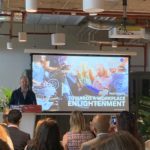
What I learnt at The Future of Work Summit.
Last week was London Tech Week and – as part of that – the Future of Work Summit was hosted at WeWork. Don’t worry if it passed you by, because I’m about to give you my top ten take-outs. Which is surely worth 240 seconds of your time. To make stuff even more palatable for you,
1. People need to collide more.
Benjamin Samuels from WeWork was the first to speak, and perhaps naturally given who he works for, pushed the importance of the space we work in. Fostering collaboration through the use of spaces that encourage people to collide. A good reminder of what we have at Havas’ HQ in Kings Cross. 26 agencies all under one roof, with floors and staircases designed so that those collisions can happen more freely.
2. The importance of quiet days.
Our wellbeing is pretty important, and if we all continue to work flat-out we’ll quickly burn-out. So it was nice to hear Angela Evans of Microsoft advocate quiet days. Days basically where you have no meetings, no phone calls, no catch-ups. So time to focus on the things you need to do.
3. Address the negativism surrounding the Fourth Industrial Revolution.
Read or listen to something about the future of work and it’ll probably reference how many jobs will be taken over by robots and how many people will need to retrain. While, of course, it will affect the way we work and the skills we need, we seem to be ignoring the positives. Ultimately, we need to remember that the tools we are developing are being developed by people for people. To make working life easier and smarter, and freeing humans up to do what machines can’t.
4. 5G might be problematic.
The 5th generation is going to, again, change the way we communicate and behave. But it was interesting to listen to the problems it may cause in the world of work. Predictably, 5G – as with 3G and 4G – will be better in urban areas than rural. But with the workforce becoming increasingly disperse, are businesses going to be able to make the most of what 5G can offer? (That’s a rhetorical question by the way.)
5. No to tech for techs sake.
There are moments in life when you really do get blindsided by the most interesting and surprising facts. That happened to me when Sam Shah – Digital Development Director at NHSX – mentioned that they were one of the world’s biggest users of fax. Now, my immediate reaction, was that this was probably just a legacy system of an organisation that has over 1 million employees. However, I was wrong. (A slightly uncomfortable feeling if truth be known.) The fact is that in an environment where wi-fi can be limited and lead walls prevent communication, fax enables patient records to be sent securely and privately. So there you go. The next time someone says, ‘we need to do something digital’, make sure there’s a reason why.
6. There needs to be balance between corporate tools and personal choice.
Chances are, the tools and apps we use in our daily lives are not the tools and apps that our businesses require us to use. Why, for example, would we want to use Microsoft Teams when WhatsApp seems to do the job most of the time? Yes, it comes down to an understanding of what some tools can offer you, but telling your workforce they have to stick to a set number of tools is unlikely to go down too well.
7. Identify employee flight risk.
There was a great talk from Jordan Pettman (Global Head of Data, Analytics and Planning at Nestle) who spoke about how the company were using data and AI to predict the flight risk of employees. Identifying when and why they might leave. I also loved the fact that they were using this to help with succession planning and not as a tool to try and stop people leaving. Something of a futile task in a world where people consider four years as a decent amount of time in any one role or organisation.
8. Education needs to change.
One of the most powerful speakers at the Summit was Emily Jenkins, a Youth Ambassador at Girlguiding UK. More importantly she’s an A-level student looking to forge a career in computer science. But her view was that unless she goes to Oxbridge (and she’d done the research to back this up) her chances of being able to do so were greatly reduced – even if she went to somewhere like Durham who are one of the best universities for the subject in the world. That can’t be right can it?
9. Agile isn’t a process.
Sometimes – actually, maybe all times – I think we forget this. We make the mistake of seeing agile as a process to make our work faster and smarter. Agile shouldn’t be a process though. It should, as former Apprentice-candidate Jordan Perrott said, ‘be a mindset’ where people view priorities, success and failure very differently. With people comfortable making proactive choices that might not always work.
10. Our work will only get more interesting.
For anyone who works in our sector, things will change. In a few years-time we won’t be trying to help Stagecoach et al hire bus drivers. We’ll be trying to find customer service representatives who want to work on autonomous vehicles.
So there we go. Hopefully you feel far more informed than you did a few minutes ago.
Jonathan Lee, Associate Creative Director






Comments are closed.